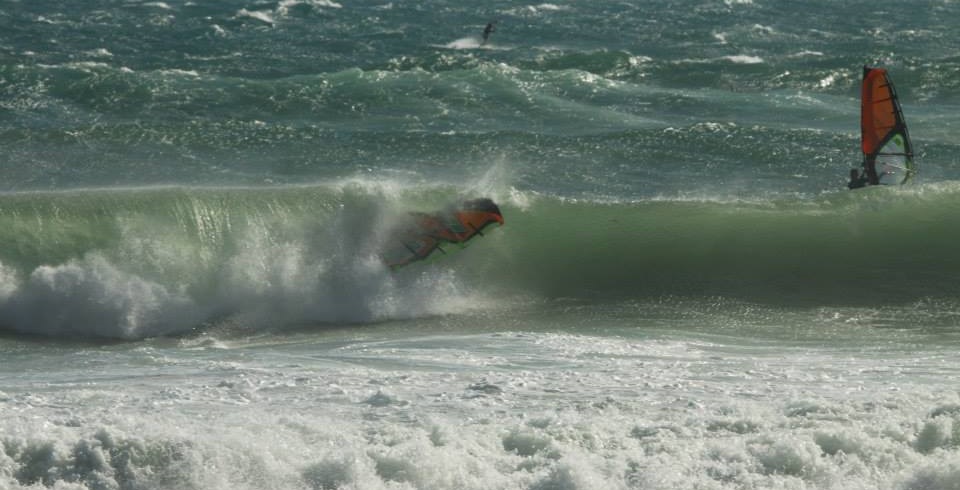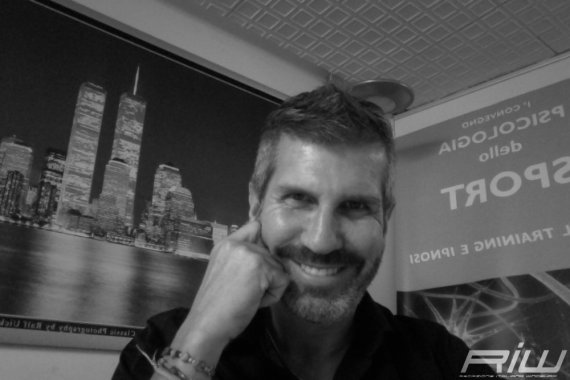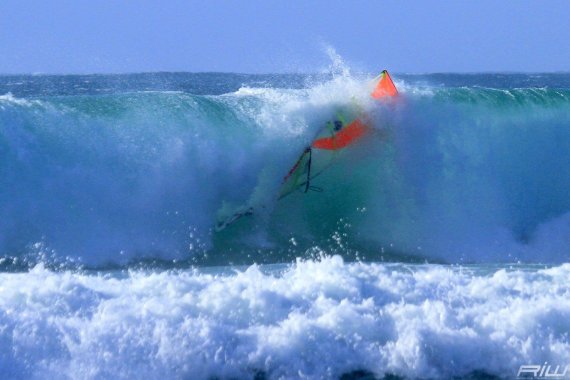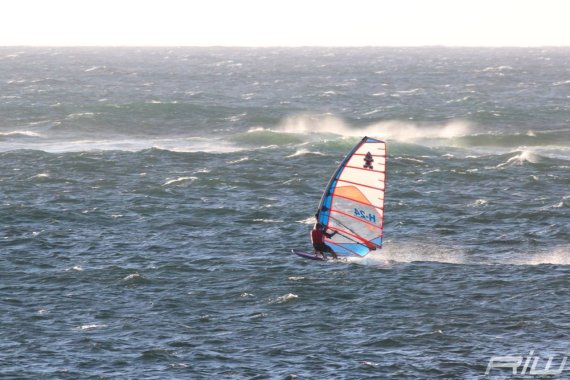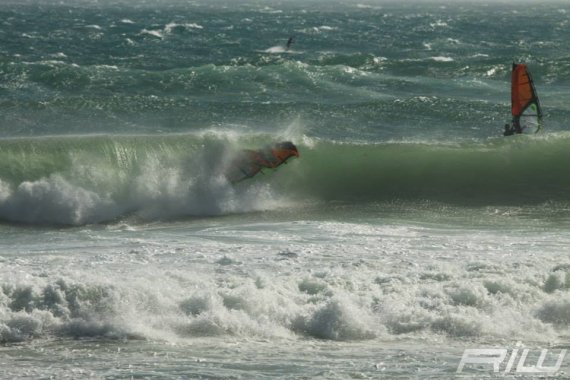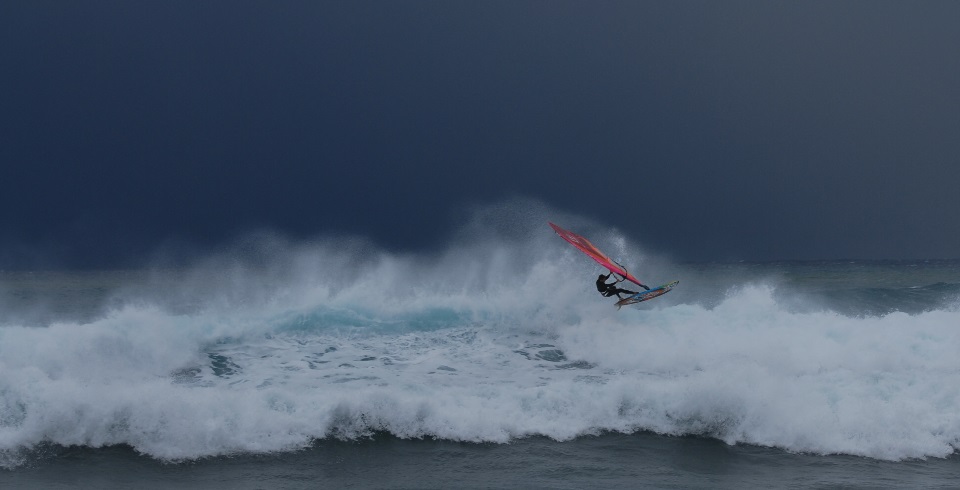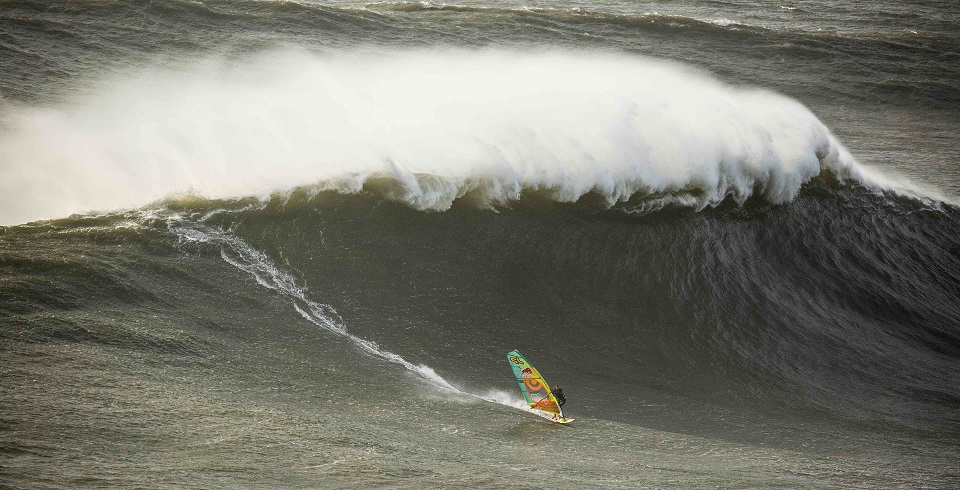Massimo Masserini, atleta regatante italiano di grande spessore tecnico (campione del mondo master slalom IFCA 2006, campione del mondo FW GMaster 2009, CAMPIONE DEL MONDO GMaster FORMULA WINDSURF 2010) ma anche Psicologo Clinico, Psicologo dello sport, Pedagogista, Ipnotista e sessuologo clinico, professore all’universita’ Popolare di Bergamo Nicholas Flamel, ha preparato la sua terza puntata per RIWmag. Considerate le tragedie “depressive” che negli ultimi anni hanno tristemente interessato alcuni ex campioni di windsurf, e considerata la depressione come una malattia della societa’ moderna, RIWmag ha chiesto a Massimo Masserini di poter affrontare in modo divulgativo questo delicato argomento. Essendo il tema molto vasto e complesso Massimo Masserini in qualita’ di psicologo dello sport ha accettato di affrontare il caso della depressione sportiva.
Lo Sport fa bene e fare costantemente Sport vuole dire vivere in modo sano!
Lo Sport aiuta a proiettare le proprie pulsioni. Il cervello di chi fa attività fisica produce serotonina, noradrenalina, dopamina, tutte sostanze chimiche che aiutano i neuroni a lavorare al meglio. Ma allora perché molti atleti sono depressi?
Numerose ricerche hanno recentemente dimostrato come un’attività fisica costante sia in grado di stimolare un miglioramento dello stile di vita nelle persone che soffrono di depressione, ma allora non si spiega perché proprio tanti atleti anche professionisti sono a rischio depressione. La “depressione maggiore”, diversamente da una normale sensazione di tristezza o di un passeggero stato di cattivo umore, presenta caratteristiche di persistenza e può interferire pesantemente sul modo di pensare di un individuo, sul suo comportamento, sulle condizioni dell’umore, sull’attività ed il benessere fisico, può presentarsi inizialmente sotto forma di tristezza, e successivamente si avverte un rallentamento mentale, scarsa concentrazione, perdita di interesse per il proprio mondo e incapacità di pensare ad un futuro positivo, insonnia e persino ideazioni suicidarie.
Esistono diversi casi, episodi di grandi atleti che, dopo una serie di successi o dopo una carriera vincente, con medaglie e titoli vinti, si trovano in difficoltà, spariscono dalla circolazione, imboccano la strada dell’alcool, droga, doping e vivono situazioni di vuoto esistenziale di cui non riescono a vedere vie d’uscita. Pertanto per essere campioni nello sport agonistico non è sufficiente solo avere il fisico, ma soprattutto, avere un buon equilibrio psicologico.
Il senso del vuoto ha toccato le vite e le carriere di molti atleti. Si può ricordare la depressione sfogata nell’alcolismo e nella vita sregolata del calciatore dell’Inter Adriano, ma anche il tennista Agassi, il nuotatore Jan Thorpe. Purtroppo in casi particolarmente tragici, si può arrivare persino al suicidio. Ricerche recenti evidenziano il forte rischio depressione in atleti professionisti: circa il 25% degli atleti soffrono di depressione, e la percentuale aumenta al 50% considerando gli atleti di fine carriera.
Quando un atleta professionista vive e lavora con il suo sport, rischia costantemente in prima persona il fallimento: una performance, un evento negativo, un infortunio, il mancato raggiungimento di un obiettivo; verifica costantemente ad ogni competizione la percezione della sconfitta. Per coloro che non possiedono una sufficiente autostima, che non hanno una passione vera per il proprio sport, e non si divertono continuamente a prescindere dal risultato, la sconfitta può rappresentare un fallimento del proprio Se’, della propria identità come persona, ci si sente inadeguati, inadatti. Si entra in un delirio psicotico nel quale si mette in discussione non il risultato e la propria persona come sportivo, ma si entra in un pensiero che demolisce la persona in tutto il suo complesso vitale.
Il vissuto personale di questi atleti, che sono sempre orientati al successo e alla notorietà, viene messo sempre in secondo piano, non hanno inoltre tempo per coltivare relazioni sane e durature, non curano la propria vita interiore, e fino a quando va tutto bene il problema resta relegato in una sorta di angolo remoto della propria personalità. L’equilibrio psicologico degli atleti può essere compromesso da:
- Stress e situazioni ansiose
- le pressioni di tifosi, media, allenatori e società sportive, consulenti
- continui cambi di città e relazioni affettive
- l’attenzione degli sponsor che sono fonte di reddito
- la ricerca della vittoria a tutti i costi (e la ricerca del doping)
- il voler mantenere a tutti i costi il top della forma fisica
Sarebbe fondamentale identificare le caratteristiche personali e le motivazioni di ciascun atleta, seguirlo costantemente durante la carriera, per poter tempestivamente riconoscere eventuali cambiamenti di umore, pensiero, comportamenti negativi, che possono essere i primi segnali che richiamano allo stato emotivo e psicologico. Se per esempio, improvvisamente e senza particolari eventi negativi, l’atleta modifica il suo atteggiamento verso lo sport, si sente stanco e poco motivato negli allenamenti, di conseguenza calano le prestazioni, litiga con allenatore e compagni di squadra, si procura spesso infortuni, salta allenamenti e competizioni, è necessario valutare una ipotesi di una problematica a livello psicologico.
Lo Psicologo dello Sport offre consulenza e formazione affinché l’insorgere di un eventuale disturbo psicologico, come la depressione, sia interpretato nella specificità del caso singolo, considerando la storia individuale e le esperienze proprie dell’atleta. La semplice tristezza o un periodo di stanchezza di per se’ non vuole dire “depressione”, ma possono essere i primi segnali importanti da tenere in considerazione. Essere atleti professionisti di alto livello è un grande privilegio di pochi, ma sarebbe utile e necessario allenare oltre al fisico, anche la propria mente, per conoscersi meglio, essere consapevoli dei propri limiti, delle proprie potenzialità, dei propri valori e quindi del proprio equilibrio, ma soprattutto a mio avviso è importante fare sport a qualsiasi livello per divertirsi, il giorno che non ci si diverte più è meglio iniziare a porsi le prime domande.
text: Massimo Masserini 4 www.RIWmag.com
photo courtesy: MaverX, Simmer, RIWmag archive

